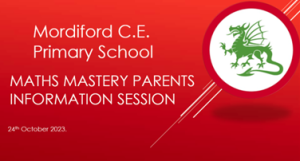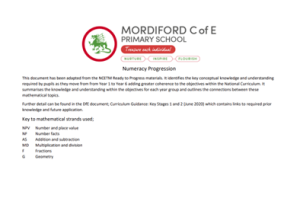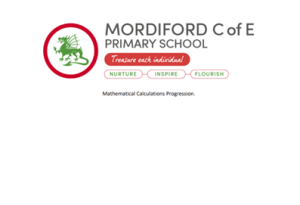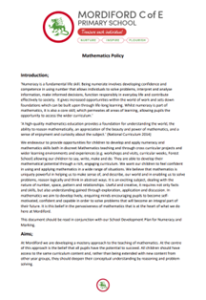
‘Numeracy is a fundamental life skill. Being numerate involves developing confidence and competence in using number that allows individuals to solve problems, interpret and analyse information, make informed decisions, function responsibly in everyday life and contribute effectively to society. It gives increased opportunities within the world of work and sets down foundations which can be built upon through life-long learning. Whilst numeracy is part of mathematics, it is also a core skill, which permeates all areas of learning, allowing pupils the opportunity to access the wider curriculum.’
‘A high-quality mathematics education provides a foundation for understanding the world, the ability to reason mathematically, an appreciation of the beauty and power of mathematics, and a sense of enjoyment and curiosity about the subject.’ (National Curriculum 2014)
Intent – What do we aspire for our children in Mathematics?
At the heart of our curriculum design is our desire to engage our pupils and provide stimulating opportunities to learn and explore, that foster a love of mathematics. Our maths curriculum ensures a rich, balanced and progressive programme of study is taught which enables pupils to develop mathematical skills and knowledge that they are able to use confidently throughout their lives. They will develop fluent conceptual understanding of content taught and will be furnished with the skills to become confident in using maths to reason and problem solve.
Our curriculum aims to help our children to make sense of the mathematical world around them. Mathematical concepts are linked to real life experiences. Mathematics is given a high profile across the curriculum. Children are taught to reason logically and problem solve, applying skills in other subjects highlighting the relevance of mathematical skills and knowledge to their lives.
Our curriculum enables our pupils to not only develop an enjoyment of mathematics but also to feel confident in using both mental and written methods, and selecting the correct operations in a range of contexts.
Implementation – How is the curriculum for mathematics organised?
The National Curriculum (2014) forms the basis of long term planning which we have developed utilising White Rose and NCETM materials which have helped form our progression of learning. Each maths objective is mapped out into a learning journey which has key skills and vocabulary, prior knowledge and misconceptions. (These are outlined in our ‘Numeracy Progression’, ‘Calculations Progression’ and our ‘Vocabulary Progression’ documents below.) Individual children move along this learning journey at their own pace, making sure they further develop their mathematical understanding at all times. This allows teachers to adapt their teaching to provide learning which challenges each child. The speed in which they move from the ‘Concrete’, exploratory phase using apparatus (varied fluency), to the ‘Pictorial’, using and applying phase (reasoning and problem solving) to the ‘Abstract’ (deeper understanding) will vary from child to child depending on their personalised learning journey and may not be linear but involve revisiting phases to ensure deeper understanding. Development of mathematical language and insistence on correct, age appropriate mathematical vocabulary permeates all learning.
Children are provided with regular opportunities for times tables work; varied fluency; reasoning and problem solving; development of mathematical language and discussion; opportunities to work independently, with teachers and with peers in a well-organised and supportive environment; and regular opportunities for self-assessment, teacher assessment and reviewing, correcting and explaining work.
We recognise the importance of providing all children with opportunities to use concrete and pictorial representations through all areas of maths to set solid foundations on which to build. This allows children to visualise abstract mathematical concepts and use them in real life.
We use a range of resource materials to ensure children receive a rich and varied exposure to a variety mathematical experiences. White Rose Schemes form the backbone of mathematic planning and progression which are supplemented by Mastering number, NCETM, Nrich and Primary Stars.
Times Table Rockstars, Froggy Maths, One minute maths, Weekly Nrich challenges, Mathsframe and Timestables.co.uk. are used to support the teaching and learning of times tables and number facts for children from EYFS to Year 6.
Curriculum Organisation;
Substantive knowledge (Summary of content that is taught. These lists are not exhaustive);
Early Years;
- Numbers and number bonds to 10.
- Mathematical patterns.
- Key mathematical vocabulary.
Key Stage 1;
- Basic Arithmetic (including numbering system, place value, operational symbols, counting, addition, subtraction, sharing equally, numerical patterns, inverse operations).
- Basic measurement.
- Simple Fractions.
- Basic Geometry.
- Number Facts (Number bonds to 20.
- Maths facts (including number bonds within and between 20, fractions facts, 2, 5 and 10 multiplication Tables facts, time facts e.g. minute in an hour).
- Associated vocabulary.
Lower Key Stage 2;
- Arithmetic (understanding of number system and place value to 1000s, addition and subtraction patterns, decimal numbers, negative numbers).
- Equivalent fractions.
- Maths Facts (Multiplication facts for all tables to 12×12.
- Roman Numeral System.
- Geometry facts (including right angles, acute and obtuse angles, symmetry, horizontal, perpendicular, parallel and perpendicular lines.
- Basic co-ordinates.
- Associated Vocabulary.
Upper Key Stage 2;
- Arithmetic (multiples, factors, decimals and prime number facts to 100, composite numbers, square and cubed numbers).
- Conversion facts for metric to imperial measurements and vice versa.
- Geometry (key circle, triangle and quadrilateral facts and formulae).
- BIDMAS
- Associated Vocabulary.
Disciplinary Knowledge;
Children learn how to work things out, reason and problem solve. They will be taught to make links across different mathematical components and to build this knowledge in their long term memory.
Impact
Our curriculum design ensures that pupils develop life-long mathematical skills and knowledge that they are able to use confidently. They will be able to select the methods, strategies and resources they need. Children learn to see mathematics as practical, relevant to their daily interactions with the world around them and fun! They will be able to discuss mathematical concepts and strategies, explain their thinking and respectfully challenge others in their mathematical thinking.
We measure the impact of mathematical teaching and learning through summative and formative assessment. We ensure that children are provided with age appropriate, formative feedback allowing them to move their learning on in a sequential way. We believe that it is important that the children engage with this feedback and that they are able to articulate their own progress. After a unit has been completed, the children will have low stake recalls to ensure the knowledge has been retained in the long term memory. These can take many forms, including quizzes, challenges, games or whole class discussions. We use summative assessments to monitor the children’s progress with three data collection points throughout the year.





